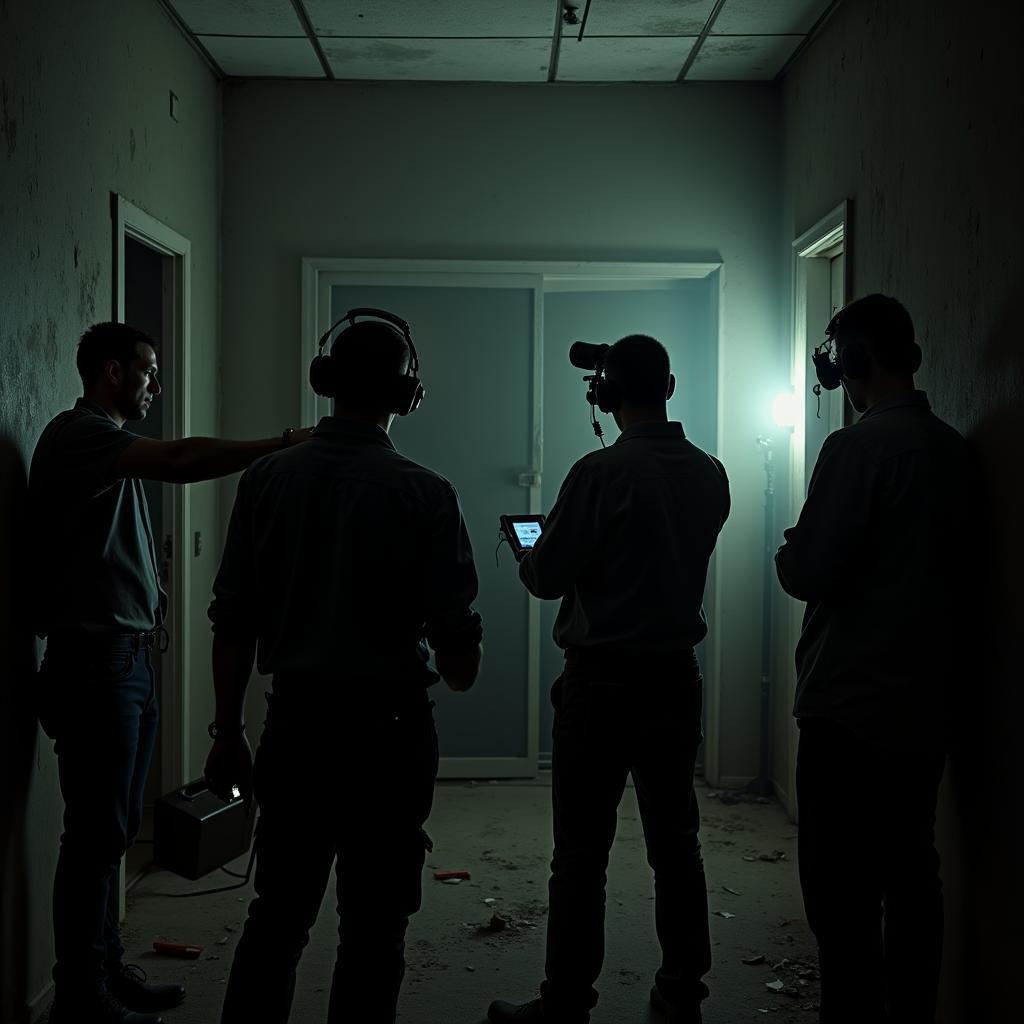Peer Research is a fascinating field within paranormal investigation that relies on the collective experiences and observations of multiple individuals to validate phenomena. It’s a crucial tool for separating genuine paranormal activity from misinterpretations, environmental factors, or even deliberate hoaxes. By leveraging the power of multiple perspectives, peer research adds layers of credibility and rigor to the often-subjective world of paranormal study.
What is Peer Research and Why is it Important?
Peer research, in the context of paranormal investigation, involves a team of investigators working together, often simultaneously, to observe and document events. This collaborative approach is essential because individual perceptions can be influenced by a multitude of factors, from personal biases and expectations to simple misinterpretations of sensory input. Having multiple witnesses corroborate an experience strengthens the evidence and helps to rule out individual error. peer engagement behaviors: conceptualization and research directions
For instance, if one investigator reports hearing a disembodied voice, but several others present hear nothing, it casts doubt on the validity of the first report. However, if multiple investigators independently report hearing the same voice, it becomes far more compelling evidence. This collaborative approach minimizes the risk of subjective bias influencing results.
 Paranormal investigators conducting peer research in a dimly lit, abandoned building.
Paranormal investigators conducting peer research in a dimly lit, abandoned building.
Different Types of Peer Research in Paranormal Investigation
Peer research can take various forms, each designed to address specific research questions and challenges. Structured peer research involves pre-determined protocols and data collection methods, ensuring consistency and reducing the influence of subjective interpretation. This might involve using standardized questionnaires, checklists, or experimental setups. Unstructured peer research, on the other hand, allows for more flexibility and is often used in exploratory investigations where the nature of the phenomena is not well understood.
Another approach is comparative peer research, where separate teams investigate the same location independently and then compare their findings. This helps to identify consistent patterns and discrepancies, providing a more nuanced understanding of the phenomena. example of peer review research paper
How Does Peer Research Enhance Credibility?
The strength of peer research lies in its ability to mitigate the inherent subjectivity of paranormal experiences. By having multiple observers, each with their own unique perspectives and sensory acuity, peer research introduces a system of checks and balances. If multiple individuals independently observe and document the same anomaly, it significantly increases the likelihood that the phenomenon is genuine and not a product of individual misperception.
Furthermore, peer research promotes transparency and accountability. When investigators work together, their methods, observations, and interpretations are subject to scrutiny by their peers. This fosters a culture of critical evaluation and reduces the risk of confirmation bias, where investigators might selectively interpret data to support pre-existing beliefs.
 Paranormal investigators reviewing data collected during a peer research session.
Paranormal investigators reviewing data collected during a peer research session.
Peer Debriefing and Its Importance
Peer debriefing, a crucial aspect of peer research, involves structured discussions among the investigators after an investigation. This provides an opportunity to share observations, compare notes, and critically analyze the collected data. peer debriefing qualitative research Through peer debriefing, individual biases and misinterpretations can be identified and addressed, leading to a more objective and comprehensive understanding of the events that transpired.
“Peer debriefing allows us to collectively make sense of often fragmented and confusing experiences,” says Dr. Amelia Hartman, a leading researcher in parapsychology. “It’s a vital tool for ensuring accuracy and reducing the influence of subjective interpretation.”
Utilizing Technology in Peer Research
Modern technology has revolutionized paranormal investigation, providing powerful tools for enhancing peer research. Devices such as EMF meters, thermal cameras, and audio recorders allow investigators to collect objective data that can be analyzed and compared. dtw research inc Furthermore, synchronized recording devices and time-stamped data logs ensure that observations from multiple investigators can be correlated precisely, adding another layer of rigor to the research process.
Professor David Miller, a physicist specializing in instrumentation for Paranormal Research, adds, “The integration of technology provides invaluable objective data that can corroborate subjective experiences and enhance the overall credibility of peer research findings.”
Conclusion
Peer research is a cornerstone of credible paranormal investigation. By embracing collaboration, transparency, and rigorous data collection methods, peer research provides a robust framework for exploring the mysteries of the unknown. Through this collective approach, we can move closer to understanding the true nature of paranormal phenomena and separating genuine experiences from misinterpretations and hoaxes. Peer research empowers us to delve deeper into the unknown with greater confidence and a shared pursuit of truth. undergraduate research conferences
For further support, please contact us at Phone Number: 0904826292, Email: [email protected] Or visit our address: No. 31, Alley 142/7, P. Phú Viên, Bồ Đề, Long Biên, Hà Nội, Việt Nam. We have a 24/7 customer support team.